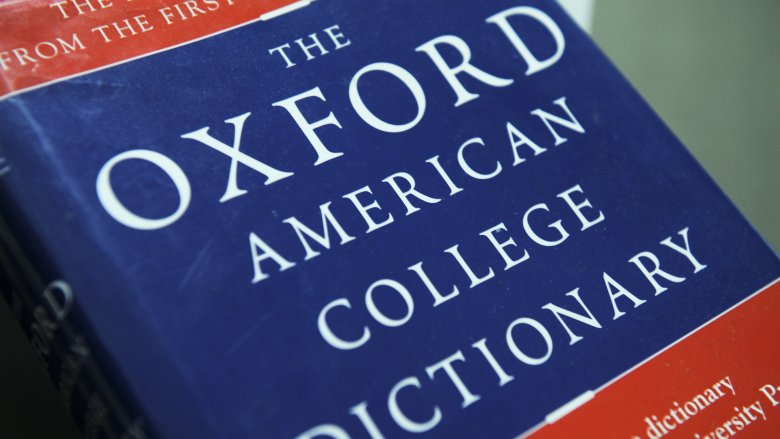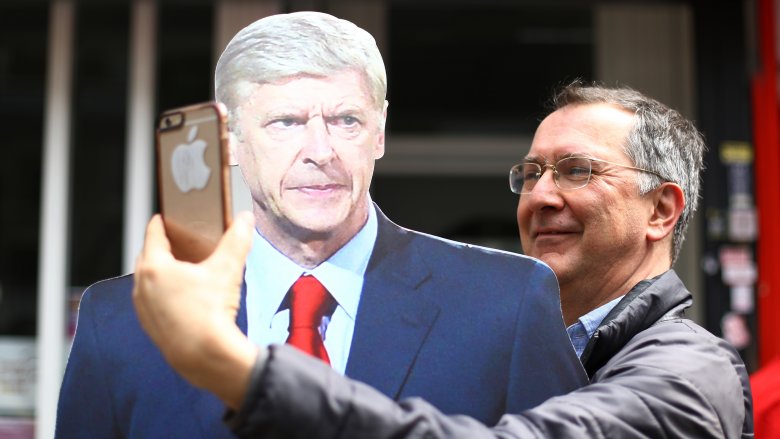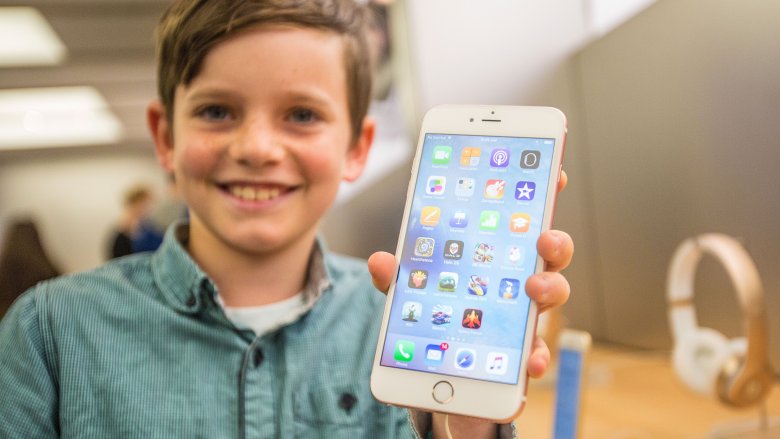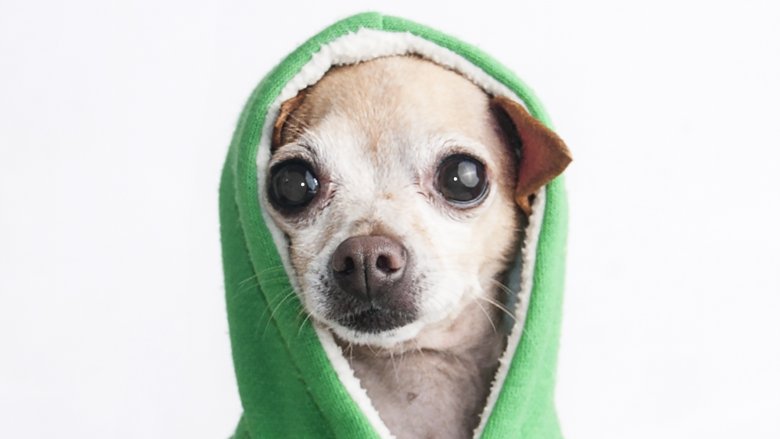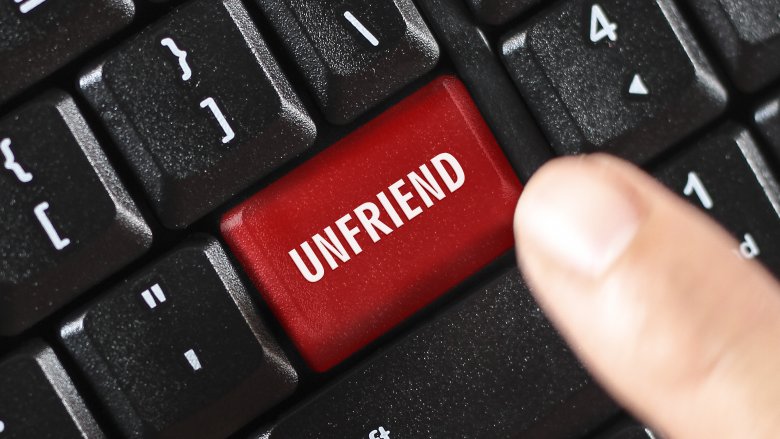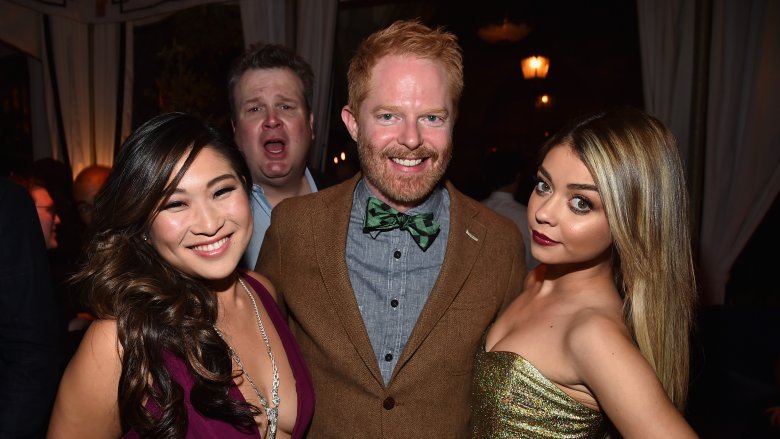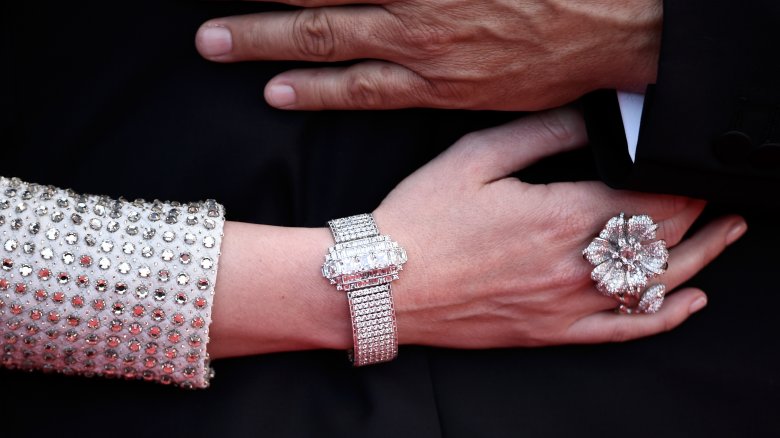Words You Use Every Day That Weren't Around 30 Years Ago
The English language is a magnificent creation — perpetually morphing and changing to suit our needs. Unlike some languages with more rigid rules, English is almost infinitely moldable — just ask Shakespeare, who created some 1700 words on his own! Indeed, our language is always changing, and some words you use every day might not even be three decades old. Here are some common, everyday words haven't been around for very long.
Selfie
What was once a largely-untitled MySpace phenomenon — namely, taking photographs of one's self — has since become a staple of our every-day vocabulary.
The first known usage of the exceedingly popular "selfie" actually came surprisingly early, in a 2002 Australian newspaper. However, it wasn't until ten years later that the world "selfie" truly came into it's own, appearing so frequently that even the Oxford English Dictionary went so far as to award the narcissistic noun its 2013 Word of the Year — leading to an even more increased usage across all media platforms. President Obama took a selfie with the Danish and British Prime Ministers. The Chainsmokers made a song about selfies. The word is so common, in fact, that it's not even confined to the English language — with many languages borrowing the word used to describe the self-centered act, as taking selfies is certainly not confined to native-English speakers.
So how did "selfies" become a part of the fabric of our lives? It's all thanks to our next word...
Smartphone
If you called your phone "smart" 30 years ago, people would probably think you're referring to its sleek and stylish design — though it probably was, in fact, gaudy and tacky. Nobody then would refer to their telephone's actual capabilities as clever.
These days, smartphones are an essential part of our everyday life, and we use the word to generically refer to any brand of modern cellphone. We use them for work. We use them for play. We use them to mindlessly waste time, as handy flashlights, and — most importantly — as our selfie cameras. Interestingly, the first known usage of the word was in 1996, though the term didn't become a staple of our vocabulary until internet-capable phones became the norm, somewhere in the mid-2000s.
Now, the only question that leaves is when Apple will patent the first "geniusphone."
Hoodie
Dating back to 1990, the word "hoodie" is a fast, efficient and more stylish way to refer to a hooded sweatshirt.
Hoods themselves date back to Medieval Europe, as the desire to keep one's head warm and covered from the elements is certainly not new. It wasn't until 1930 — when the clothing company Champion introduced the hooded sweatshirt to laborers in frigid upstate New York — that the article of clothing as we know it came into being. The popularity of Rocky Balboa and hip-hop music firmly cemented the hooded sweatshirt into popular fashion.
It's almost unbelievable that it took roughly 60 years for the product to be nicknamed "hoodie," but them's the facts — and nothing about the English language makes much sense, anyhow.
Meh
Feeling a bit indifferent about something? Need a way to express your extremely mild level of disappointment? Well then, just give it a good "meh."
Meh has been around since 1992, but you'd be forgiven for not recognizing the interjection until recent years — unless, of course, you're a Simpsons fan. The long-running animated series is almost solely responsible for popularizing the word, with "meh" first appearing in Season 6's "Sideshow Bob Roberts" — first aired on Oct. 9, 1994. In the episode, a clerk responsible for maintaining Springfield's voting records responds to Lisa's observation that the secret ballots weren't actually secret. The clerk responded — well, you know.
According to Slate, the episode's writers, Bill Oakley and Josh Weinstein, said that it was fellow Simpsons writer John Swartzwelder — himself a big fan of "meh" — who first brought "meh" to the writing room. When asked, Swartzwelder said he first got the word from "an advertising writer named Howie Krakow back in 1970 or 1971 who insisted it was the funniest word in the world."
Calling "meh" the funniest word in the world might be a bit strong. But there are few other words that so perfectly sum up the specific feeling of not caring enough to have feelings at all.
Millennial
The word "millennial" has been around since 1664 — and, thus, is clearly not unique to the past few decades. However, the word has taken on an entirely new meaning since 1991, and has become particularly popular in recent years.
Indeed, the adjective form of the word is way older than anyone reading this. Rather, it's the noun form that's new in these modern times, being used as a label to define people born in the 1980s and 1990s — and not always positively. Typically stereotyped as a liberal generation — with open-minded attitudes regarding topics such as same-sex marriage and minority rights — some older and more conservative folks have taken to calling millennials entitled, useless, spoiled, and worse. Others view the first grown-up-with-the-internet generation as self-confident and connected, understanding, and possessing useful skills in a rapidly-evolving workplace.
Whatever your personal opinion on millennials might be, they're here to stay — as is the word itself.
Binge-watch
Gone are the days of living by your television's schedule! Thanks to the power and glory of high-speed internet, we now live in the age of on-demand media consumption — meaning we're free to consume television series in the most satisfying way possible. Of course, we're talking about binge-watching.
The transitive verb has been in existence since 2003. And, just as binge-drinking means to drink can after can of beer in rapid succession, binge-watching means to watch every episode of a television series in rapid succession. Netflix, of course, has made this easier than ever — as have other competitive streaming services. But binge-watching actually goes back to the advent and commercial success of the DVD. Whether losing your job and forgetting all responsibilities from an epic Battlestar Galactica binge, or plowing through every episode of Freaks and Geeks in your friend's basement while continually passing a freshly-packed bowl, binge-watching shows has become a staple of how we consume television in the digital age.
Just remember that, as with alcohol, it's important to binge-watch responsibly. You know... because sleep and work are important, too.
Unfriend
Back before the days of social networking — and Facebook, in particular — nobody would ever say they've "unfriended" somebody. Rather, a simple "stopped being friends with" somebody sufficed. In fact, if somebody told you they'd "unfriended" someone thirty years ago, you'd probably have thought they needed to brush up on their grade-school grammar — or maybe stop with all the binge-drinking.
"Unfriend" first truly came into being in the early 2000s, and likely coincided with the creation and popularity of the early social networking website MySpace — in which you could 'rank' your friends by assigning them to your "Top 8." In those days, it wasn't uncommon to befriend a random person on MySpace, only to have them send you some creepy messages, resulting in their subsequent deletion — or "unfriending." Once Facebook took off, however — like, in 2006, when your parents, teachers, and racist uncles started to join — the verb "unfriend" became a completely normal and acceptable part of our ever-changing vocabularies. They even made a bad horror movie about it!
Photobomb
Fifteen years ago, there's a good chance that if you casually dropped the word "photobomb" in conversation, you'd cause some serious confusion.
Photobombing became an appropriately-titled phenomenon in the late 2000s, though people surely have been sneaking into camera shots since the early days of photography. With the advent of quick and easy digital cameras — as well as the rise of social media and the public displaying of photographs on the internet — intentionally ruining other people's photo ops became so widespread that the act required a name. Thus, "photobombing" was born... and it's all the rage. These days, everyone is getting in on the action — including Canadian Prime Minister Justin Trudeau, who photobombed some high school students' prom picture in May 2017.
Bling
It probably won't come as a surprise that the word "bling" was not used by Victorian ladies to describe their jewelry, nor did English gentlemen exhibit their newest "bling" whilst showing off to their competitors at the local pub or gambling den. Rather — as you might have guessed — "bling" wasn't a thing until the turn of the last century, when late-90s and early-2000s rap started flaunting diamond-laden chains and platinum grills.
Millennials might remember coming home from school and downloading Juvenile's and Lil Wayne's track "Bling Bling" on Napster, or turning on MTV and seeing virtually every rap group in a full-on arms race to see who could out-bling the rest — with bling on their car's rims, bling on their pinkie rings, and bling on virtually every conceivable square-inch of bling-able surface. That era of rap is, for all intents and purposes, over, and one might argue that the addition of the word "bling" to our everyday vocabulary was its crowning achievement.
Those people, however, would be wrong.
